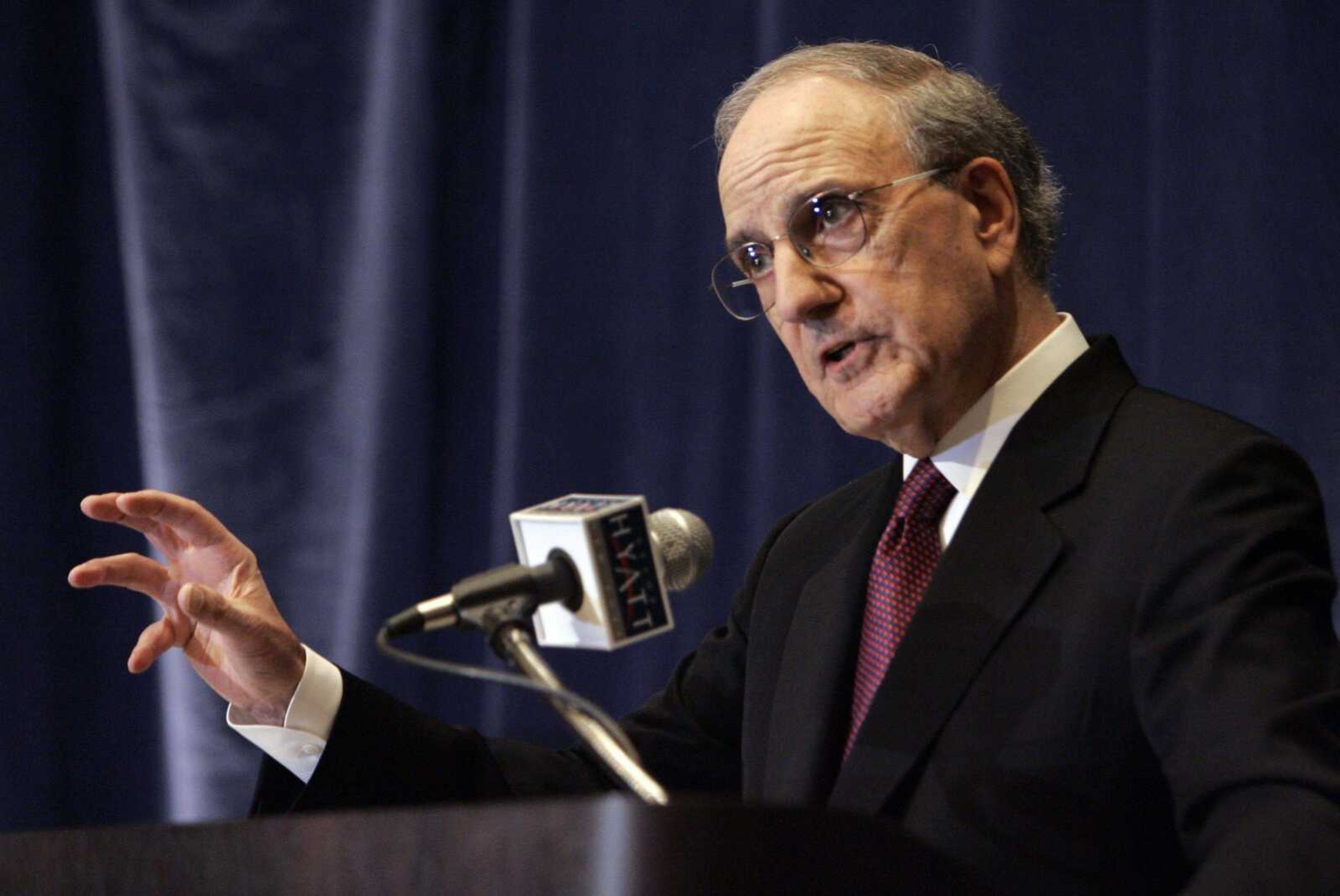The Mitchell Report: Bonds, Clemens, Pettitte, Tejada among MLB All-Stars revealed
NEW YORK -- Seven MVPs and 31 All-Stars -- one for every position -- and that still wasn't the worst of it for the long-awaited Mitchell Report. That infamy belonged to Roger Clemens, the greatest pitcher of his era. The steroids era. Seven-time Cy Young Award winner, eighth on the all-time list with 354 victories, an MVP and All-Star himself and once a lock for the Hall of Fame, Clemens now has another distinction: the biggest name linked by former Senate Majority Leader George Mitchell to illegal use of steroids and other performance-enhancing drugs.. ...
~ The 409-page report on the use of performance-enhancing drugs in MLB identified 86 players, including 31 All-Stars.
NEW YORK -- Seven MVPs and 31 All-Stars -- one for every position -- and that still wasn't the worst of it for the long-awaited Mitchell Report.
That infamy belonged to Roger Clemens, the greatest pitcher of his era.
The steroids era.
Seven-time Cy Young Award winner, eighth on the all-time list with 354 victories, an MVP and All-Star himself and once a lock for the Hall of Fame, Clemens now has another distinction: the biggest name linked by former Senate Majority Leader George Mitchell to illegal use of steroids and other performance-enhancing drugs.
In all, Thursday's 409-page report identified 86 names to differing degrees, but, while he vehemently denied it through his lawyer, Clemens was the symbol.
Barry Bonds, already under indictment on charges of lying to a federal grand jury about steroids, Miguel Tejada and Andy Pettitte also showed up in the game's most infamous lineup since the Black Sox scandal.
"If there are problems, I wanted them revealed," commissioner Bud Selig said. "His report is a call to action, and I will act."
Doping was widespread by stars as well as scrubs, the report said, putting a question mark if not an asterisk next to baseball records and threatening the integrity of the game itself.
Eric Gagne, Gary Sheffield, Jason Giambi, Troy Glaus, Gary Matthews Jr., Paul Byrd, Jose Guillen, Brian Roberts, Paul Lo Duca and Rick Ankiel were among other current players in the report. Some were linked to Human Growth Hormone, others to steroids. Mitchell did not delve into stimulants.
"Those who have illegally used these substances range from players whose major league careers were brief to potential members of the Baseball of Hall of Fame," Mitchell wrote. "They include both pitchers and position players, and their backgrounds are as diverse as those of all major league players."
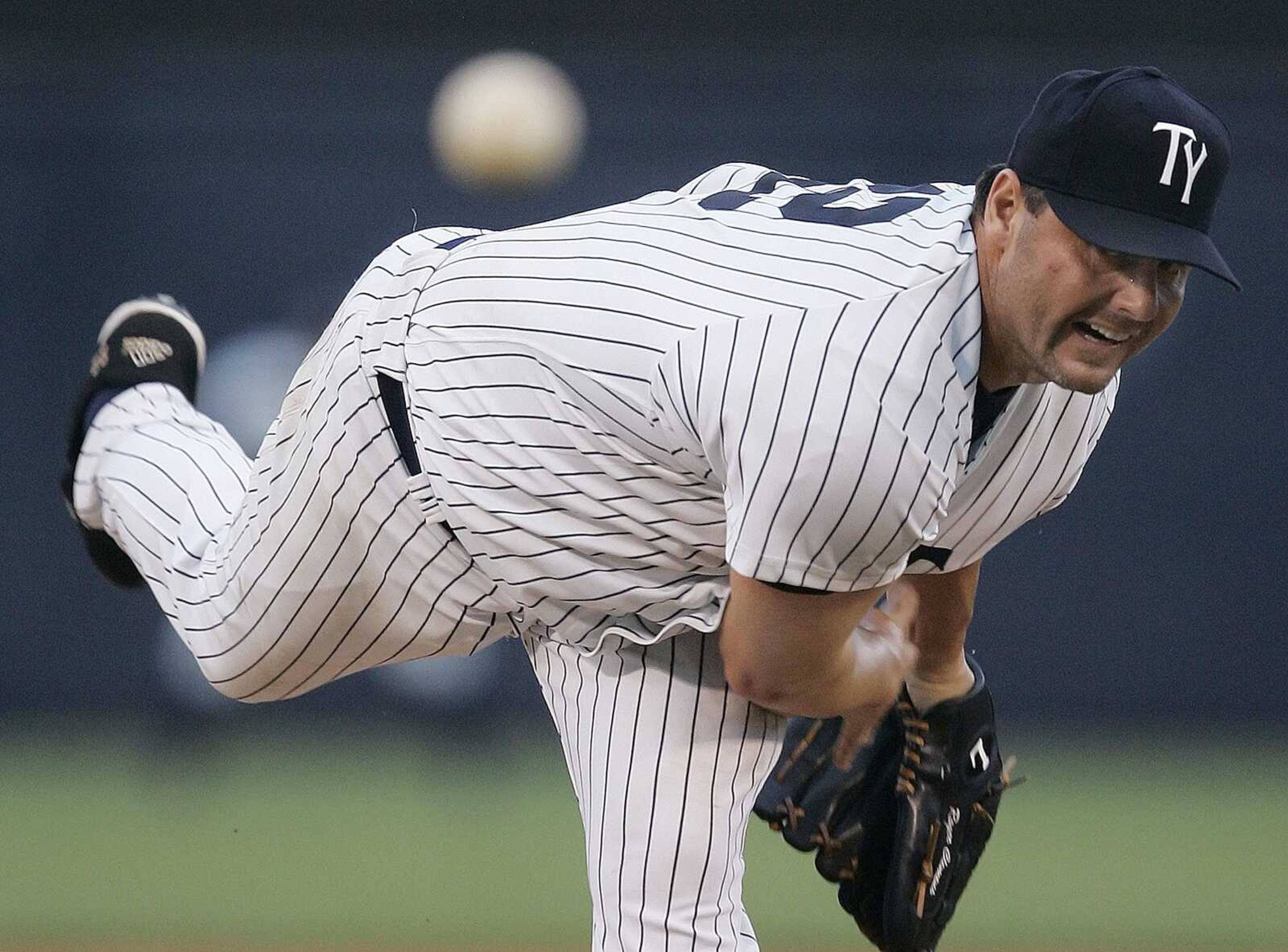
No one was hit harder than Clemens, singled out in nearly nine pages, 82 references by name. Much of the information on him came from former New York Yankees major league strength and conditioning coach Brian McNamee.
At 45, Clemens has not said whether he hopes to pitch next season.
The report was unlikely to trigger a wave of discipline. While a few players, such as Bonds, are subjects of ongoing legal proceedings, many of the instances cited by Mitchell were before drug testing began in 2003.
Mitchell said punishment was inappropriate in all but the most egregious cases, and Selig said decisions on any action would come "swiftly" on a case-by-case basis.
"We have approached these cases by looking at the period of time during which the conduct occurred and what our policy looked like for that point in time," said Rob Manfred, baseball's executive vice president for labor relations.
While the records will surely stand, several stars could pay the price in Cooperstown, much the way Mark McGwire was kept out of the Hall of Fame this year merely because of steroids suspicion.
Mitchell said the problems didn't develop overnight and there was plenty of blame to go around.
"Everyone involved in baseball over the past two decades -- commissioners, club officials, the players' association and players -- shares to some extent the responsibility for the steroids era," Mitchell said. "There was a collective failure to recognize the problem as it emerged and to deal with it early on."
Mitchell recommended that the drug-testing program be made independent, that a list of the substances players test positive for be listed periodically and that the timing of testing be more unpredictable.
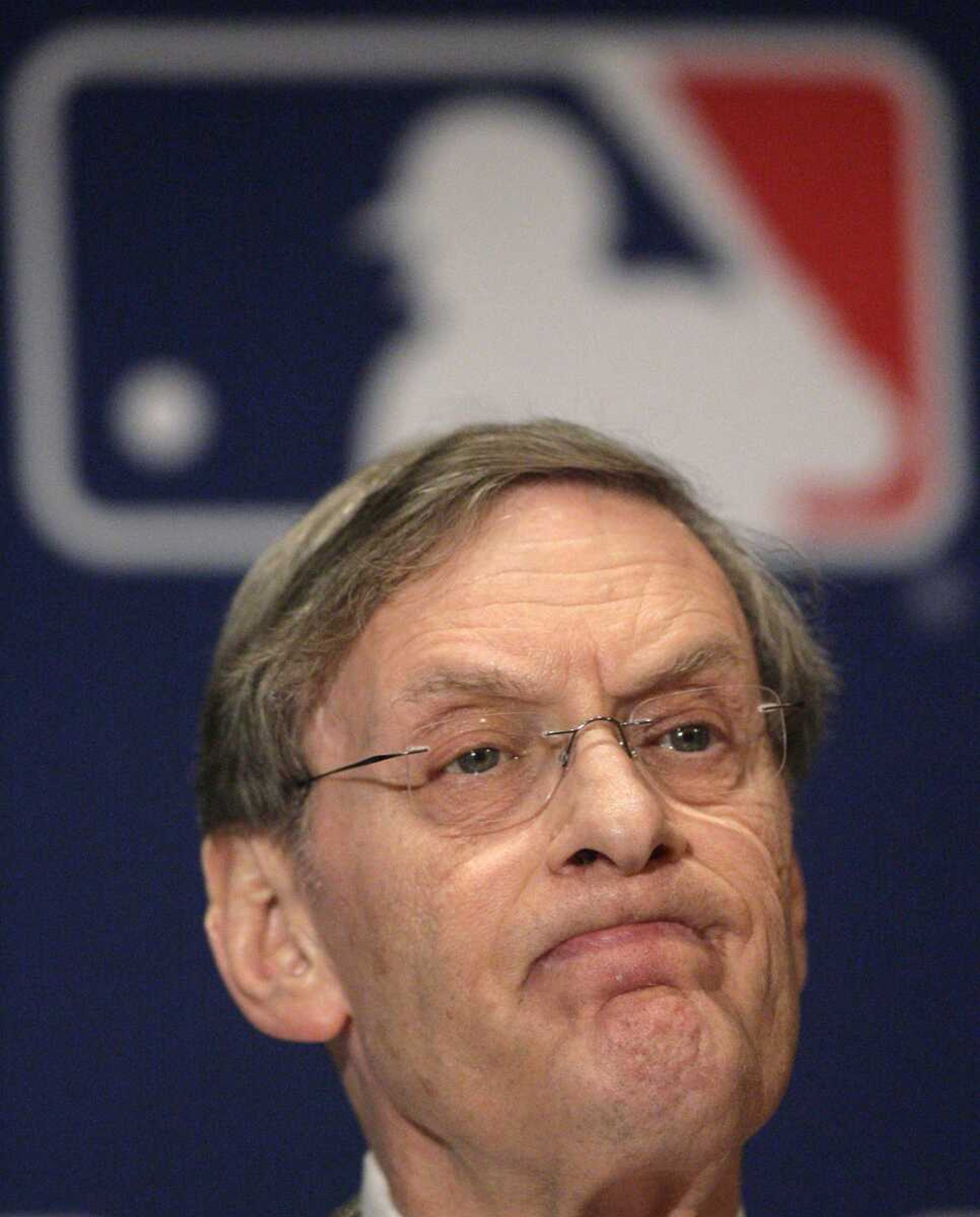
"The illegal use of performance-enhancing substances poses a serious threat to the integrity of the game," the report said. "Widespread use by players of such substances unfairly disadvantages the honest athletes who refuse to use them and raises questions about the validity of baseball records."
Jose Canseco, whose book "Juiced" was cited throughout, was mentioned the most often -- 105 times. Bonds was next at 103.
A total of 16 Yankees, past and present, were identified. Players were linked to doping in various ways -- some were identified as users, some as buyers and some by media reports and other investigations.
"According to McNamee, from the time that McNamee injected Clemens with Winstrol through the end of the 1998 season, Clemens' performance showed remarkable improvement," the report said. "During this period of improved performance, Clemens told McNamee that the steroids 'had a pretty good effect' on him."
McNamee also told investigators that "during the middle of the 2000 season, Clemens made it clear that he was ready to use steroids again. During the latter part of the regular season, McNamee injected Clemens in the buttocks four to six times with testosterone from a bottle labeled either Sustanon 250 or Deca-Durabolin."
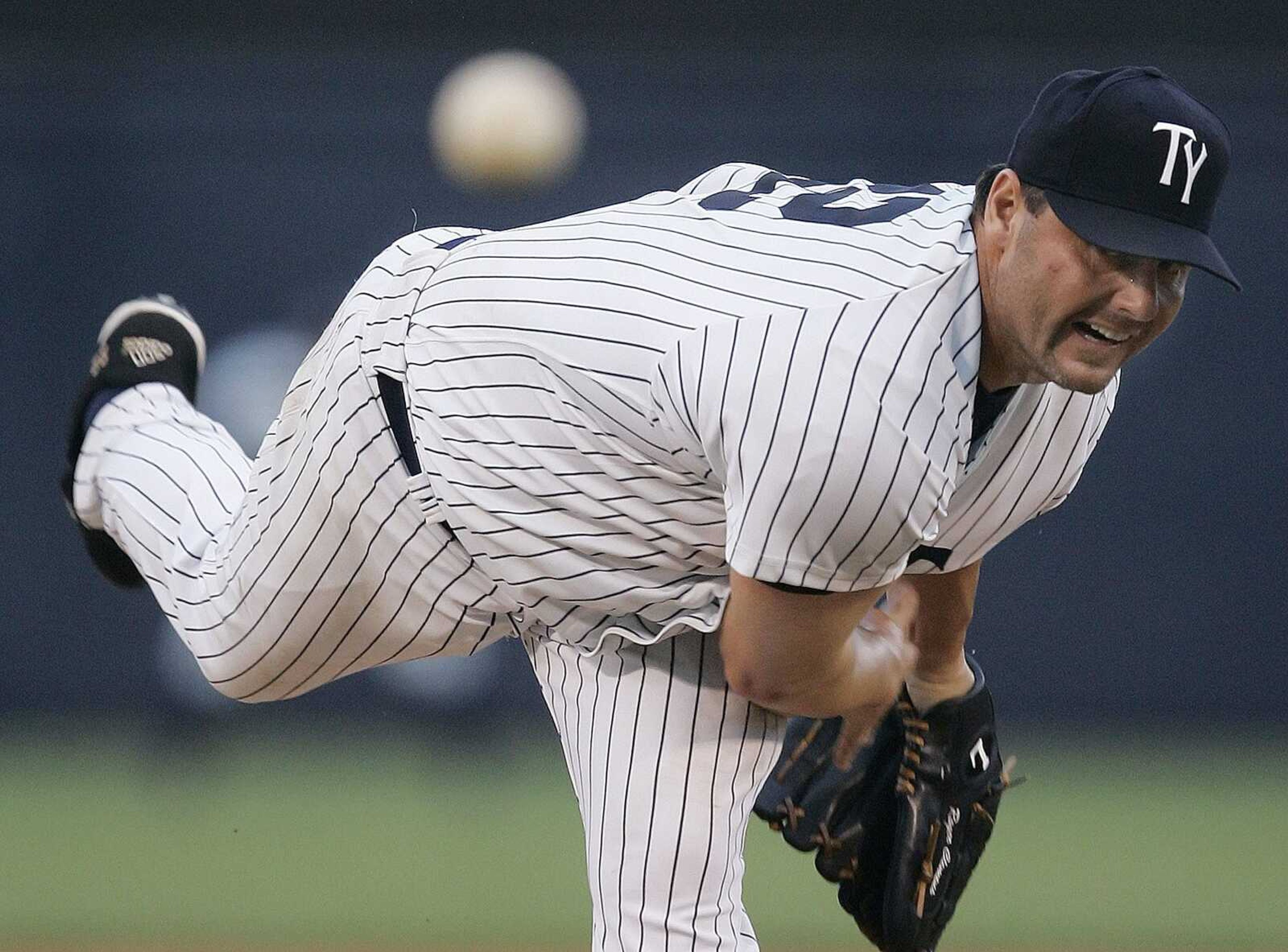
"It is very unfair to include Roger's name in this report," said Clemens' lawyer, Rusty Hardin. "He is left with no meaningful way to combat what he strongly contends are totally false allegations. He has not been charged with anything, he will not be charged with anything and yet he is being tried in the court of public opinion with no recourse. That is totally wrong."
"There has never been one shred of tangible evidence that he ever used these substances and yet he is being slandered today," said Hardin, who called McNamee a "troubled man."
Former Mets clubhouse attendant Kirk Radomski also provided information as part of his plea agreement in a federal steroids case.
"Former commissioner Fay Vincent told me that the problem of performance-enhancing substances may be the most serious challenge that baseball has faced since the 1919 Black Sox scandal," Mitchell said.
Rafael Palmeiro, who tested positive for steroids, was among the former players named. So were Kevin Brown, Benito Santiago, Lenny Dykstra, Chuck Knoblauch, David Justice, Mo Vaughn, Wally Joyner and Todd Hundley.
Mike Stanton, Scott Schoeneweis, Ron Villone and Jerry Hairston Jr. were among the other current players identified.
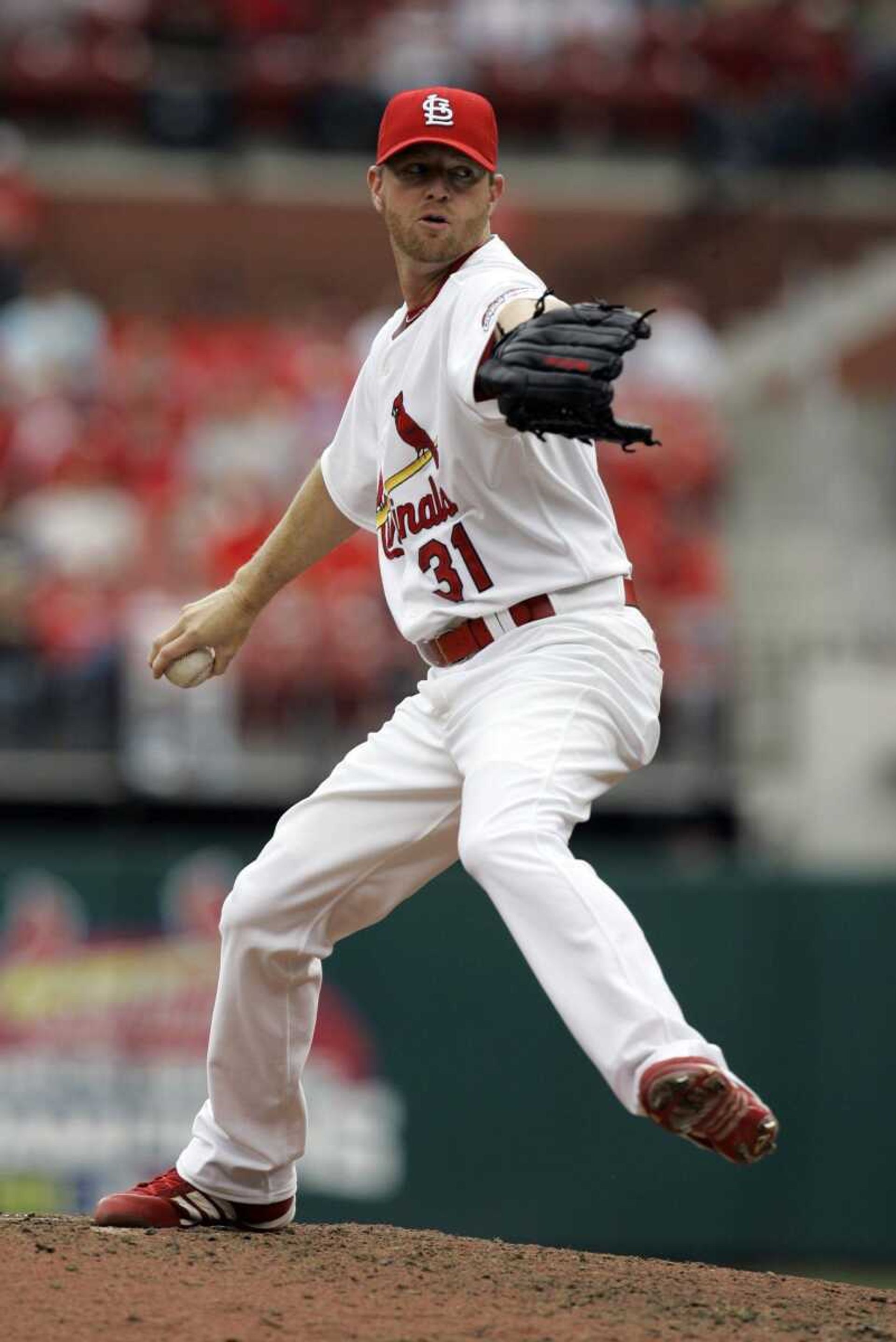
"We identify some of the players who were caught up in this drive to gain a competitive advantage," the report said. "Other investigations will no doubt turn up more names and fill in more details, but that is unlikely to significantly alter the description of baseball's 'steroids era' as set forth in this report."
One player mentioned but not expressly accused was McGwire. His use of Androstenedione during his 1998 home run race with Sammy Sosa set off baseball's first concerns about steroids.
Testifying before Congress in 2005, McGwire refused to talk about his past, and refused as well to cooperate with Mitchell. The report recounts all that without making any accusations.
Sosa, who testified with McGwire and denied knowingly using steroids, also was spared by Mitchell.
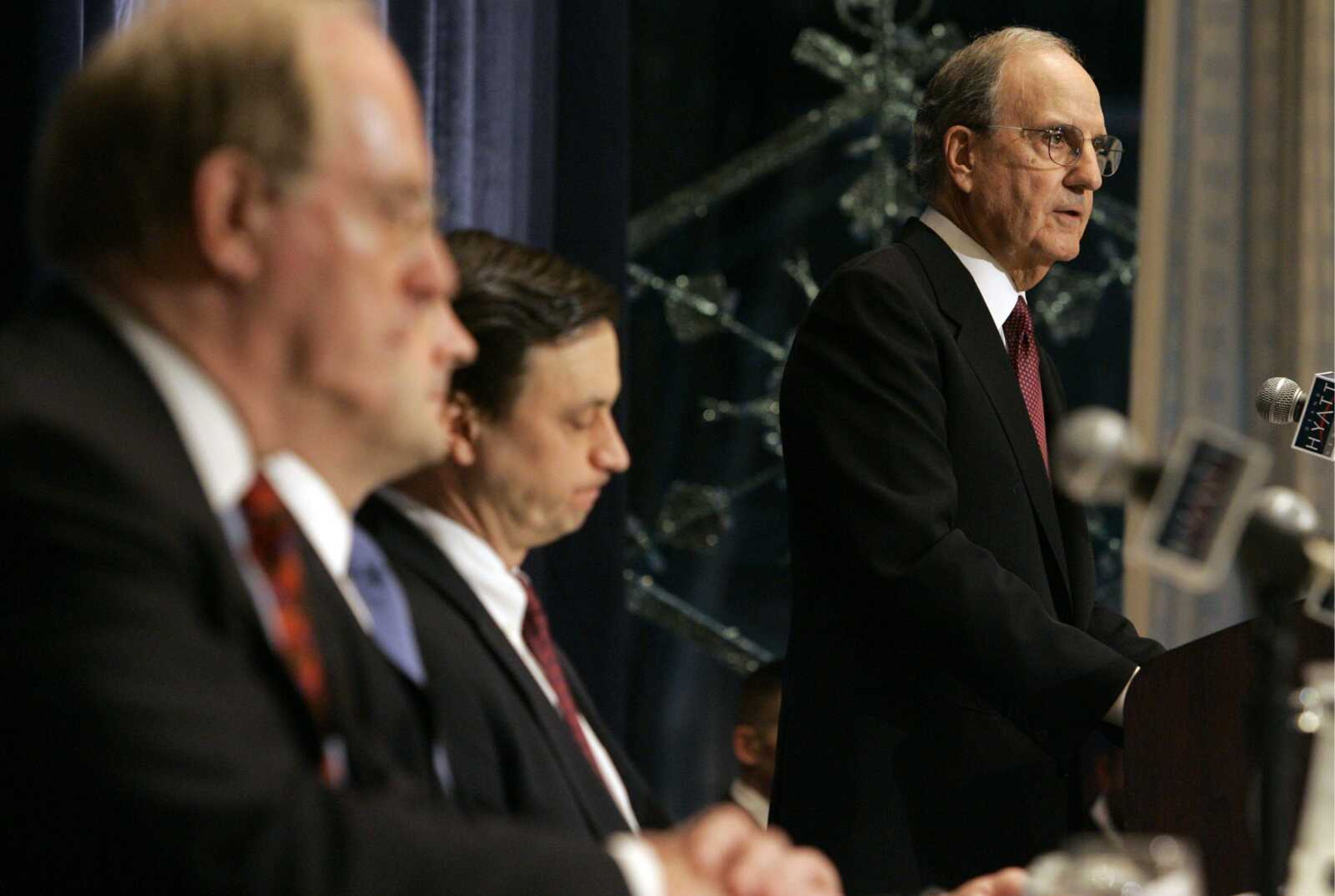
The report took issue with assertions that steroids were not banned before the 2002 collective bargaining agreement.
They had been covered, it said, since management's 1971 drug policy prohibited using any prescription medication without a valid prescription, and were expressly included in Vincent's 1991 drug policy.
"Steroids have been listed as a prohibited substance under the Major League Baseball drug policy since then," the report said, although no player was disciplined for them until the 2002 labor agreement provided for testing.
Mitchell questioned whether players were tipped off about testing. He said a former player, whom he didn't identify, claimed he had been given two weeks' notice of a drug test by Gene Orza, the union's No. 2 official, in September 2004. Orza did not respond to a message seeking comment.
Mitchell is a director of the Boston Red Sox, and some questioned whether that created a conflict, especially because none of their prime players were in the report.
"Judge me by my work," Mitchell said. "You will not find any evidence of bias, special treatment, for the Red Sox or anyone else. That had no effect on this investigation or this report, none whatsoever."
Giambi, under threat of discipline from Selig, and Frank Thomas were the only current players known to have cooperated with the Mitchell investigation.
"The players' union was largely uncooperative for reasons that I thought were largely understandable," Mitchell said.
Union head Donald Fehr made "no apologies" for the way they represented players.
"Many players are named. Their reputations have been adversely affected, probably forever," he said. "Even if it turns out down the road that they should not have been."
Certainly a lot of people read the names. The report was downloaded 1.8 million times off MLB.com in the first three hours after it was posted.
About two hours after the report was released, two congressmen at the forefront of Capitol Hill's involvement in the steroids issue asked Mitchell, Selig and Fehr to testify at a House committee hearing next Tuesday.
California Democrat Henry Waxman and Virginia Republican Tom Davis -- the leaders of the panel that held the March 17, 2005, hearing at which McGwire, Palmeiro and Sosa testified -- want to know "whether the Mitchell Report's recommendations will be adopted and whether additional measures are needed," they said.
Also, a Congressional subcommittee will hold a hearing Jan. 23 relating to steroid use in professional sports.
---
AP Sports Writers Rachel Cohen and Bill Konigsberg and AP Sports Writer Howard Fendrich in Washington contributed to this report.c
---
MLB players in Mitchell Report
Players connected to steroids, either use or possession:
Chad Allen
Mike Bell
Gary Bennett
Larry Bigbie
Ricky Bones
Kevin Brown
Ken Caminiti
Mark Carreon
Jason Christiansen
Howie Clark
Roger Clemens
Paxton Crawford
Jack Cust
Brendan Donnelly
Chris Donnels
Lenny Dykstra
Matt Franco
Ryan Franklin
Eric Gagne
Jason Grimsley
Jerry Hairston
Phil Hiatt
Matt Herges
Glenallen Hill
Todd Hundley
Ryan Jorgensen
Wally Joyner
Mike Judd
David Justice
Chuck Knoblauch
Tim Laker
Mike Lansing
Paul Lo Duca
Exavier "Nook" Logan
Josias Manzanillo
Cody McKay
Kent Mercker
Bart Miadich
Hal Morris
Daniel Naulty
Denny Neagle
Rafael Palmeiro
Jim Parque
Luis Perez
Andy Pettitte
Adam Piatt
Todd Pratt
Stephen Randolph
Adam Riggs
Brian Roberts
F.P. Santangelo
David Segui
Mike Stanton
Ricky Stone
Miguel Tejada
Derrick Turnbow
Mo Vaughn
Ron Villone
Fernando Vina
Rondell White
Jeff Williams
Todd Williams
Kevin Young
Gregg Zaun
Players cited for "Alleged Internet Purchases of Performance Enhancing Substances:
Rick Ankiel
David Bell
Paul Byrd
Jose Canseco
Jay Gibbons
Troy Glaus
Jose Guillen
Darren Holmes
Gary Matthews Jr.
John Rocker
Scott Schoeneweis
Ismael Valdez
Matt Williams
Steve Woodard
Players linked through BALCO:
Marvin Benard
Barry Bonds
Bobby Estalella
Jason Giambi
Jeremy Giambi
Benito Santiago
Gary Sheffield
Randy Velarde
Connect with the Southeast Missourian Newsroom:
For corrections to this story or other insights for the editor, click here. To submit a letter to the editor, click here. To learn about the Southeast Missourian’s AI Policy, click here.

